Our Publications
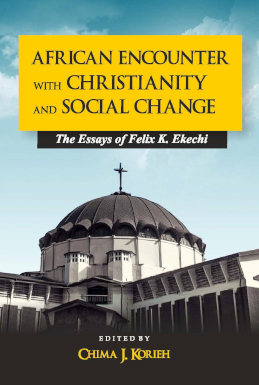
African Encounter with Christianity and Social Change: The Essays of Felix K. Ekechi
African Encounter with Christianity and Social Change draws from some of the most important essays of one of the pioneer historians of Christianity in Africa. The book covers a range of themes from the work of Felix K. Ekechi, focusing on critical analysis of Africa’s encounter with Christianity. The book explores a broad range of themes, including historiography. Pioneers in the mission field, collaboration in the mission field and instruments of evangelization. The intersection of religion, economy, culture is visible in the analysis and struggle to Christianize African societies is made manifest as Africans attempted to balance their world with the new. The volume further explores missionary endeavor among the Igbo people focusing on the career of early Christian pioneers including the Holy Ghost Fathers and Venerable Archdeacon Dennis. Drawing on the Igbo experience, the volume reveals the impact of Christianity on politics, education and other forms of social change.
The volume also explores the careers of African pioneers in the mission field and the struggle to Africanize Christianity focusing on the works of M. D. Opara of Nigeria and the Nigerian Zion Mission. The chapters in this volume draw attention to the role of Christianity as one of the most dynamic forces in Africa’s encounter with Europe and modernity and Ekechi’s influence in defining the contour of the transformative impact of this encounter.
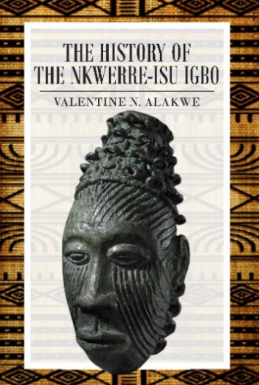
The history of Nkwerre-Isu Igbo
This book explores the history of the Nkwerre Isu Igbo (Isu Ama and Isu Ofe Iyi Igbo) groups of southeastern Nigeria. It deals with forces that shaped their cultural, social and political transformation. The book explores the mythology of the origin of the Isu clan and provides an overview of the people’s customs, traditions and their social and political organizations. Additionally, the book explores the role of Isu traders, travelling blacksmiths and medicine men and the emergence of the concepts of Isu fraternity and Isu guild of blacksmiths which laid sold foundation for Isu confederation as well as the pre-colonial stigma—Isuma, meaning nomads. The book reveals that the migration and settlement of Isu people outside the primary centre paint vivid pictures of hegemony, fraternity as articulated in the concept of Isu wu otu or universal brotherhood of Isu groups. Their history, however, like that of other Igbo societies was affected by British colonial administration and the divide and rule principle of administration. The transition of the Isu from tradition to modernity was influenced by exposure to western education, the native court system, mission churches. These changes had devastating effects on the traditional institutions, norms and values of the people. Consequently, the social and economic foundation of Isu people fell to the dictates of Europeanization with attendant ills such as the decline of moral values and increase in crimes. Church propaganda among other forms of structural changes has forced the Isu communities to succumb to change and modernization.
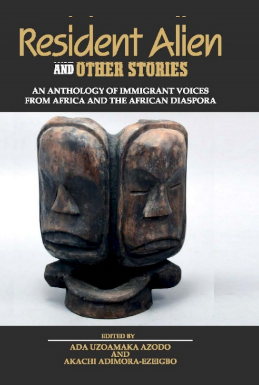
Resident Alien And Other Stories
This anthology, Resident Alien and Other Stories, is a unique collection by many standards. First, it is a creative work realized by erudite academics turned fiction writers, whose passion for the written word comes from the desire to explore contemporary cross-cultural and identity issues, through creating in the literary short story genre. Second, as literary luminaries they have paid close attention to style, for the technique of short fiction writing demands utmost attention to the craft of writing that is only second to the demands of poetry writing. Third, the collection spans a wide range of materials, from children’s story, crime, feminism, love, sex and romance, poetry, rhetoric, ethnics and racism. Those are realistic subjects featuring directly lived experiences or experiences of people the writers have observed. Some of them are so real that they might annoy someone. However, the contributors request not to be liked or disliked for their work, but rather to be admired for their exploration of human drama and for their creative genius. Fourth, their stories are not stereotypical nor are they designed to prove something. On the contrary, they reflect the sheer complexity and complications of human communities across transnational borders. Despite the research that has gone into them, they are clear, lucid, believable, and authentic stories in which the characters drive the human narrative with their everlasting quality. We challenge the reader to ascertain the stories that were written long ago and put away bidding the time and opportunity to be published, and those written recently, impetuously, as it were, to respond to the call for contributions to this anthology. Finally, this first fruit of the harvest season is a forerunner of the next collection and other collections in a series to come. Stay tuned!
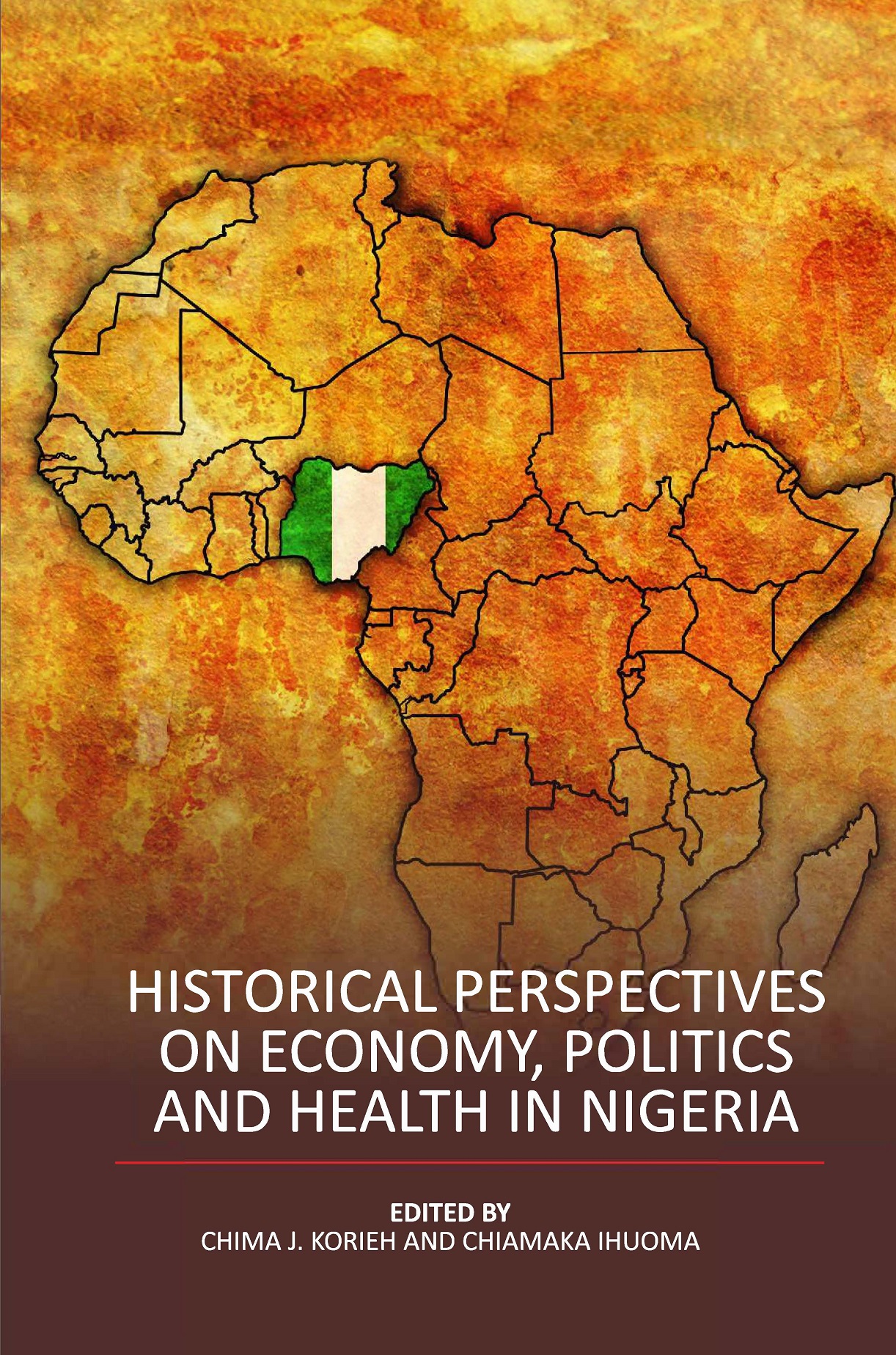
Historical Perspectives on Economy, Politics, and Health in Nigeria
The literature on several aspects of Nigerian history has grown rapidly in recent years. Yet there is continued interest in the development of the Nigerian nation, evidenced by the contemporary challenges the nation continues to face in the areas of politics, economy, and social development. This volume surveys different aspects of Nigeria’s struggle to achieve a level of growth and stability in the areas of politics, economy, and health. The contributors offer critical perspectives on the successes, failures, and opportunities in these sectors, spanning from the colonial to the post-colonial era. The chapters show that Nigeria’s struggle for sustainable growth in these areas has been challenged by the structural weaknesses of the Nigerian state and the centripetal and centrifugal forces that have struggled for the soul of the Nigerian state.
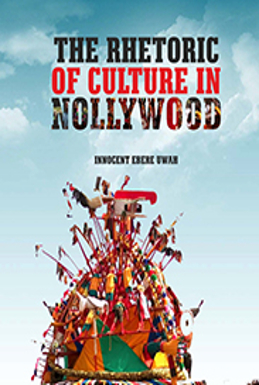
The Rhetoric of Culture in Nollywood
The Rhetoric of Culture in Nollywood explores the representation of grassroots cultures in popular Nigerian film industry, Nollywood. It analyses the aesthetics and political economy of the industry and uses its screen depictions to theorize the new face of African cinema and its contributions to Nigerian, nay African identity construction. This book contributes a voice to the discourse on film industry and what the Nollywood representations actually depict not only for Nigerians who are its proximate consumers but also for the wider world as its global audience. The goal is to problematize the Euro-American imageries of Africa shrouded around such negatives as: diseases, jungle life, pagan rituals, famine, wars, brokenness, poverty, illiteracy, slavery, incivility, among others as they are underscored in typical Hollywood movies. The book brings textual analysis to cultural representation and audience’s interpretations in order to re-think the identity construction of Africans from within and therefore contributes to the intellectual world order of global knowledge economy.
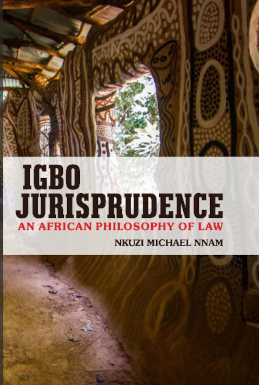
Igbo Jurisprudence: An African Philosophy of Law
This book presents a comparative study of Anglo-American and Igbo jurisprudence from a philosophical, historical, expository, investigative, interpretative and most of all, comparative and jurisprudential perspective, since jurisprudence is defined as an examination of the legal process through critical analysis. It attempts to compare and contrast the Anglo-American jurisprudence with that of Igbo in order to familiarize Nigerian law students, professors, judges and lawyers with the fact that Igbo has its own jurisprudence. The book challenges the widely held view that the Igbo has its own jurisprudence different from the common law based English type. They manifest this prejudice by the way they recourse to Western, to the detriment of African jurisprudence. This book dispels this bias. The work, therefore, is the first of its kind, not the least because it considers the Igbo traditional jurisprudence as an equal partner to the dialogue. A basic examination of Igbo and Anglo-American jurisprudence shows more contrasts than similarities between the two societies as we might expect.
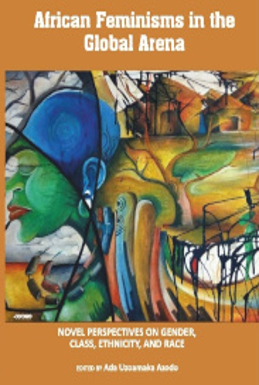
African Feminisms in the Global Arena
This anthology argues that indigenous feminist theorists should expand their local vision into the global context. First, one good result is that feminist will get a better grip on the subjects of their protest, which are not always clear from one theorist or activist to the other. When experiences of local women are expanded onto the world level, one begins to see how the female condition is similar or different, barring local color. Second, one can see why feminism should go beyond women’s issues only to fight for equal opportunities for all peoples all over the world.
A fight for intersectionality in feminist scholarship, for example, demonstrates that a fight against ethnicity and racism is also a fight against kyriarchy. This is because issues of power, repression and subordination are not only for dignity, respect and regard for women, but for all citizens irrespective of gender. Third, gender justice should be predicated on racial justice, because outside one’s community one can be beset with ethnicity and racial discrimination or ethnophobia and homophobia respectively. More and more women should go into politics, where policies are made to control their lives. Only self-assertion and intellectual ability should be upheld, not physical strength and dominance, for qualification for political appointments
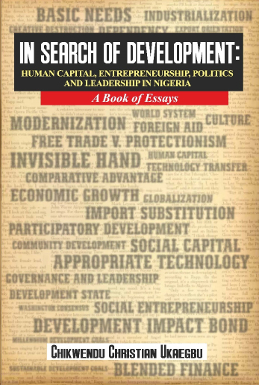
In Search of Development: Human Capital, Entrepreneurship, Politics & Leadership in Nigeria
This book observes that while human and natural resources abound in Nigeria, the search for national development which started at independence in 1960 continues without a clear path to a desirable destination. Therefore, if the long search for national development is to bear fruit, current and future efforts should seriously focus on matters of leadership and constraints posed by the geo-ethno-political structure of the country.
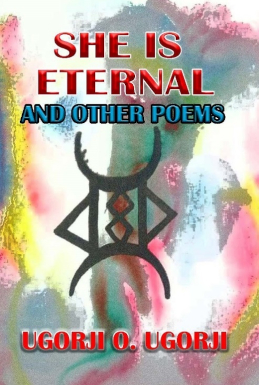
She is eternal and other poems
Although anchored in his Igbo identity, Ugorji’s poems present a broad consciousness in pan-Africanism and an expansive humanity that transcends his ethnicity, his region, and the Nigerian nation-state. More interestingly, one sees a streak of feminism in the works of a man raised in the patriarchal traditions of his childhood, reflecting perhaps his over 30 years of being immersed in the emancipation consciousness of his American odyssey.
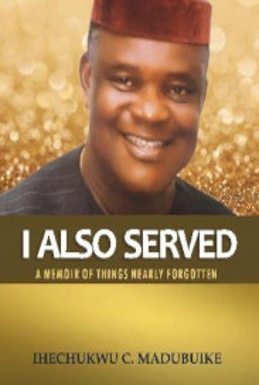
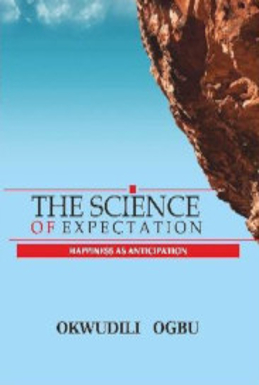
The Science of Expectation
Although a large part of happiness is looking forward to something, this aspect of happiness has remained largely unexplored and unexplained. The bulk of the attempts to explain it so far have come from fields such as neuroscience, music and psychology. Furthermore, as a phenomenon anticipation has been variously conceived and studied under different names, such as hope, expectation, prospection, and similar. This current work attempts to fill the knowledge gaps and to provide a deepened understanding of the phenomenon of anticipation from the philosophical perspective. The effort has been able to formulate a single theory that integrates the different conceptions into a unified theory of expectation. This integration has itself gone on to support a unified understanding of the phenomena of boredom, anxiety, peace, habituation/adaptation, and set-point. It arises from logical analysis, and hence, being based on simple and flawless logical foundations, is able to provide a philosophical and scientific basis for understanding these phenomena which core themes in positive psychology are. But the work‘s ultimate achievement is that it has been able to establish an articulate definition of happiness and suffering. By logical analysis of the phenomenon of anticipation, The Science of Expectation grounds the meaning of happiness – and naturally also explains the way to it! In the final analysis it identifies happiness as peace and suffering as worry or anxiety. And it posits that the way to peace is to lower expectation, or in practical terms, to live lowly.

History and Diplomacy: Essays in Honour of Ade Adefuye
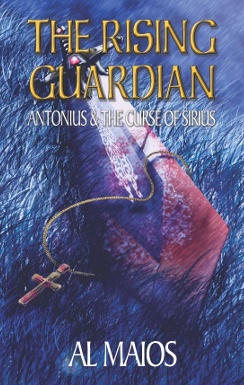
The Rising Guardian: Antonius & the Curse of Sirius
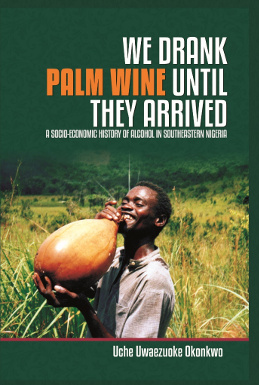
We Drank Palmwine Until They Arrived
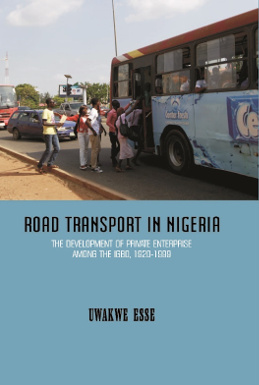
ROAD TRANSPORT IN NIGERIA
The relationship between transport and economic development has in recent years remained a subject of acrimonious debate among economists and development economists. Modern transportation is a critical prerequisite for economic development and growth. It is fundamental to all other forms of development. During the colonial period, road transport enterprise was precluded from enterprises qualified for advances or grants from the Eastern Regional Development Board (ERDN) for reasons not unconnected with its interpretation of “economic” development. This book challenges the view held by some colonial apologists, as represented by Allan McPhee and Arthur F. Richards who believed that without Western capital and organization, cultural and political progresses in Nigeria would have been impossible. The book fills the above gap in the analysis of how the Igbo applied their economic and business acumen to a novel enterprise, which over time and circumstances was beset with difficulties. This work serves as a reference material for all interested in the field of public and private enterprise.
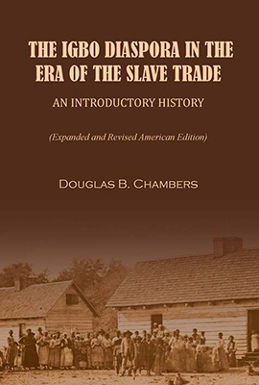
The Igbo Diaspora in the Era of the Slave Trade: An Introductory History
Of the estimated 1.7 million enslaved people taken from the Bight of Biafra in the transatlantic slave trade, some three-quarters or about 1.3 million were Igbo. As the British dominated the Biafran trade, especially before 1810, the great majority of enslaved Igbo wound up in the British Americas. The single most important diasporic destination in this massive forced migration was Jamaica. Enslaved Igbo also were taken in large numbers to other British Caribbean islands, as well as to what became the United States, and to the French sugar-island of Saint-Domingue (Haiti), and in the nineteenth century to Cuba and Brazil. This book explains the basic historical geography of the enslaved Igbo Diaspora and suggests the many ways that Igbo contributed to slave resistance and the development of early African-American cultures in the New World, as well as historical consequences of the violence of slaving for Igboland itself. Throughout the Atlantic world, Igbo Africans had a well-deserved reputation as “bad slaves.” Who in their right mind would wish to be remembered as a “good” slave?
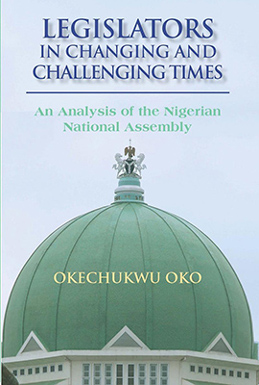
Legislators in Changing and Challenging Times: An Analysis of the Nigerian National Assembly
African legislators deal with a myriad of anxieties: about the excesses of overbearing and dictatorial party leaders; about increasingly disenchanted and restive voters who skewer them with charges of insensitivity and selfishness; about a dysfunctional electoral process that often fails to function effectively and fairly; about an executive branch that frequently mistakes cooperation for surrender. These anxieties have profound and far-reaching effects on legislators and often depress the zeal and optimism with which they perform their duties. Cumulatively, they produce the incubus that threaten not only the independence of legislators but the effectiveness of the entire legislature. This book examines the problems and challenges facing legislators in Nigeria. It presents an account of where the legislature in Nigeria has been, where it is headed, and where and what it should be. An examination of the legislature will enhance both an understanding of the role and functions of the legislature in a democracy and clarify how the cultural milieu in which legislators live and operate affects and constrains their functions. By engaging in historical and empirical analysis, it seeks to identify contemporary trends in the legislature and to provide an informative analysis of the interplay between environmental factors and the exercise of legislative powers. Ultimately, this study will present an account of the resilience and tenacity of the Nigerian National Assembly. It will document how legislators exert themselves, face seemingly intractable problems, and battle furiously, and for the most part successfully, to honor their commitments both to this nation and its search for a durable constitutional order.
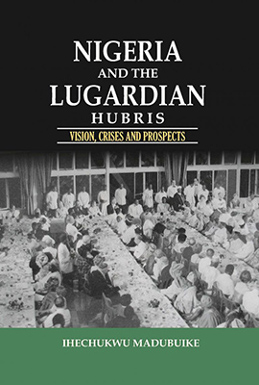
Nigeria and the Lugardian Hubris: Vision, Crises and Prospects
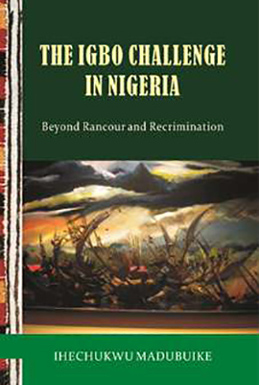
The Igbo Challenge in Nigeria: Beyond Rancour and Recrimination
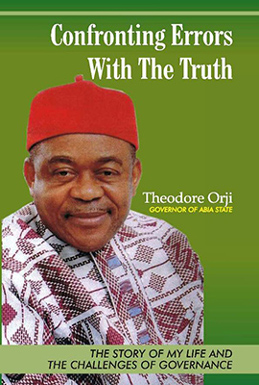
Confronting Errors With the Truth: The Story of My Life and the Challenges of Governance
This book is an account of my stewardship both as a civil servant and a politician. I write not to celebrate self or to debunk frivolous and baseless allegations by my detractors, but to document for posterity my efforts to improve the welfare of fellow citizens. I also write to explain my approach to governance, my attitude to power, the philosophy and desire that motivate and drive me to act and behave the way I do. I write candidly about the circumstances of my early years; the people and events that shaped my life; my years in public service; my foray into politics; and my challenges as Governor of Abia State.
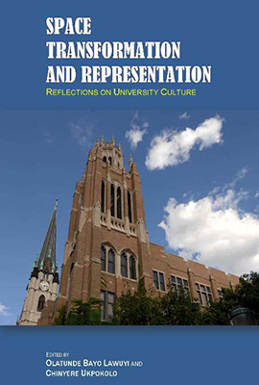
Space, Transformation and Representation: Reflections on University Culture
This book brings together diverse theoretical and empirical research on the university Culture from locations and interconnected spatial contexts within the continent of Africa and beyond. The major challenge is that of calling attention to various interactional processes and strategic moves leading to the administration, as well as intellectual development within the specific universities examined. It, thus, moved from the positivistic foundation of the university that is, of the academic rationalization of its existence, to examining experiences, which negate its ideal mentalistic constructions, exploring such issues as intercultural encounters, youth and protest culture, rites of passage, and exploration of memory to establish concrete structures of presence, interventions, and values. Most of the contributors are African scholars within and outside the continent and their reflections are of the type of a reflexive navigation of the space within the university and how performers have become bonded or not to it. In sum, it is a book about voices and their contestations of space, physical and intellectual, and timing of actions, in order to save the best interest of Africa specifically, and that of the world at large.
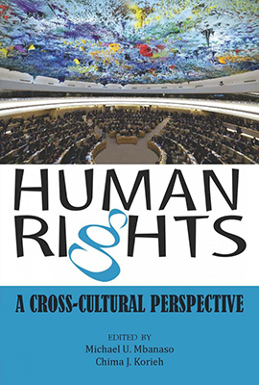
Human Rights: A Cross-Cultural Perspective
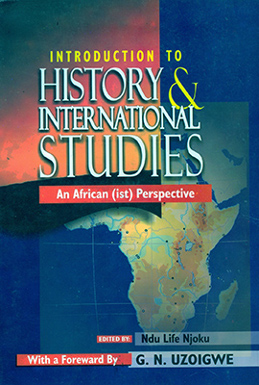
Introduction to History and International Studies: An African(ist) Perspective
Introduction to History and International Studies: An African(ist) Perspective
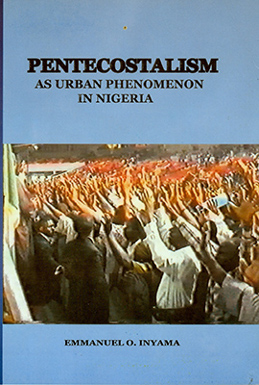
Pentecostalism as an Urban Phenomenon in Nigeria
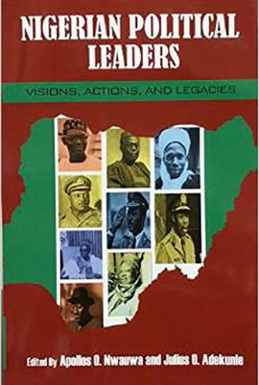
Nigerian Political Leaders: Visions, Actions, and Legacies
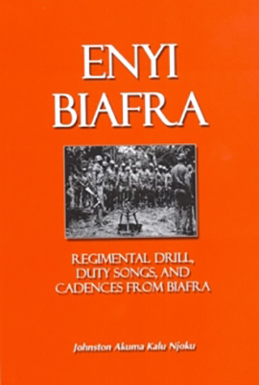
Enyi Biafra: Regimental Drill, Duty Songs, and Cadences from Biafra
This is an unusual songbook in many respects. In the sense that it presents the voice of the Other Ranks from Biafra, the songbook is unusual. Unlike most war and liberation songbooks the book contains musical notation and transcripts of the sung texts as well as the meanings and relevance of the songs. The writer, who rose from private to the rank of a Sergeant in the Biafran Army, weaves ethnographic and personal experience narratives around popular regimental drill and duty songs from Biafra. It is not often that one gets the chance to hear the members of the Other Ranks tell their own part of the stories of the wars they fought. That is another why in which this songbook is unique. It is also different in yet another way: The target audience is the Biafran recruits, privates, and corporals who fought the war together with the greater Igbo speaking peoples of Nigeria who experienced the events that led to Biafra, suffered in Biafra, and still faces, as a people, constant threats and absence of justice in contemporary Nigeria. Even though it is short, it captures the Biafran saga—good, bad, and ugly.
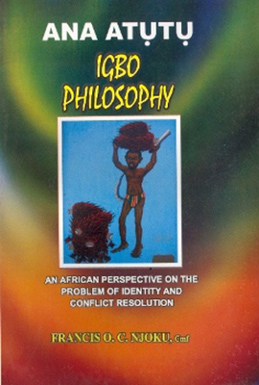
Ana Atutu – Igbo Philosophy: An African Perspective on the Problem of Identity and Conflict Resolution
This book is an attempt to found an African Philosophy on the principles generated by African Philosophy itself. It is a book that rationalizes Igbo African Philosophy, drawing from it non-philosophical corpus to make explicit the philosophy implicit in it. This book is s venture that takes on the problem of identity in the light of contemporary studies regarding conflict resolution.

Nuggets of Time
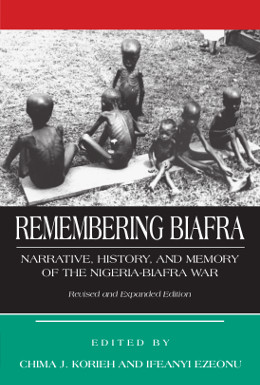
Remembering Biafra: Narrative, History, and Memory of the Nigeria-Biafra War
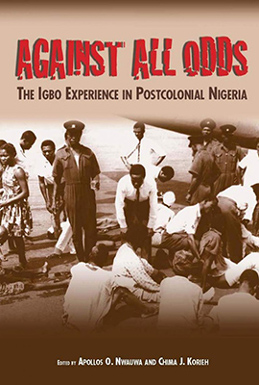
Against all Odds: The Igbo Experience in Postcolonial Nigeria
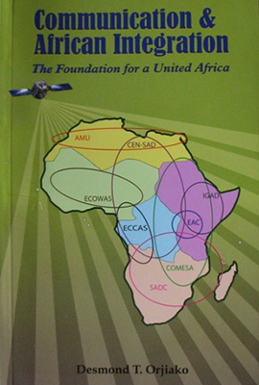
Communication and African Integration: The Foundation for a United Africa
Communication and African Integration: The Foundation for a United Africa explores the role of communication and the mass media in the attempt to integrate African countries. The book draws on historical as well as current attempts by African leaders to unite the continent and illustrates the centrality of communication in order for these efforts to succeed
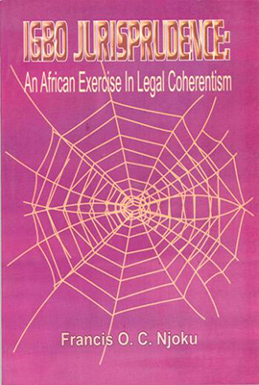
Igbo Jurisprudence: An African Excercise in Legal Coherentism
Igbo Jurisprudence: An African Exercise in Legal Coherentism is a theoretical endeavour to establish how Igbo African Jurisprudence can be rationalized along side Igbo African ontology. The book studies Igbo world and through a hermeneutical method makes explicit the philosophical and legal ideas implicit in it. Against a backdrop of a covenant theory of Igbo socio-political communication, it explains issues such as law, rights, rules, authority, morality and initiative democracy as tooted in Igbo African ontology. In specifically discussing the is-ought problem in Igbo Jurisprudence, this short but intense work proposes legal coherentism as a theory that ties together the natural law and the legal positivist inclinations of the Igbo socio-legal mind. Given the issues treated, this book is at once an essay in Igbo jurisprudence, and social/political theory.
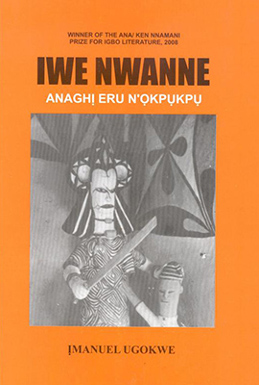
Iwe Nwanne Anaghi Eru N'Okpukpu
Akụkọ a bụ banyere umunne abụọ Amanze na Ikediobi bụ ndi nọ na iro ọtụtụ afọ. Ihe nile di n’ elu ụwa nwere ihe mere ha jiri dịịri. Ha nile nwere ihe ha na arụ. Nwanne enweghi ihe dika ya. Oso n’ otu n’ ime ihe di n’ ụwa ana agaghi eji ego zụta. Mana obụ nani mgbe ụkwụ jiere agụ, ka mgbada ji abiara ya ụgwo. Mgbe mmadụ na nwanne ya bịara nwebe okwu bụ mgbe ụmụ nnadi na-abia n’ etiti ha. Akụ gụrụ nwata agụụ anaghi arụ ya afo. Ha mesịrị dozie okwu we birikwa. Ya bụrụ ya. Ihe mere eji egbochi agadi nwanyị ịta ụkpala bụ, n’ihi na obuta ụkwara ozuo oha onụ.
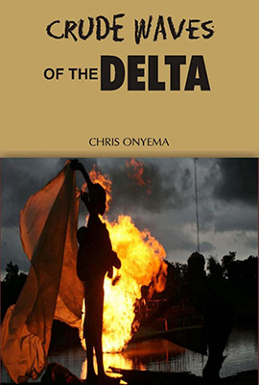
Crude Waves of the Delta
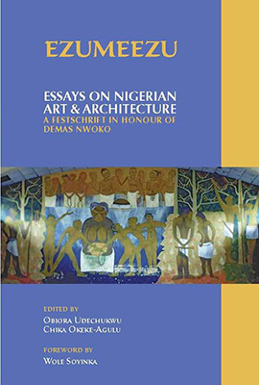
Ezumezu
Ezumeezu: Essays on Nigerian Art and Architecture– A Festschrift in Honour of Demas Nwoko
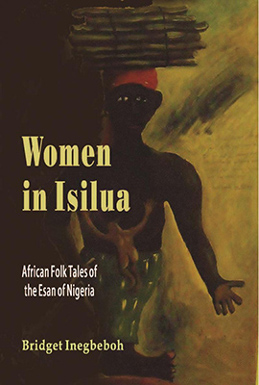
Women in Isilua: African Folktales of the Esan of Nigeria
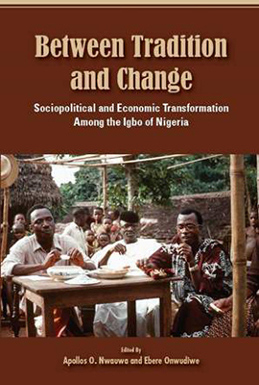
Between Tradition and Change: Sociopolitican and Economic Transformation among the Igbo of Nigeria
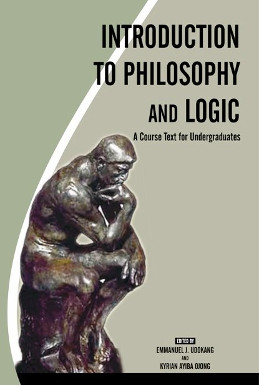
Introduction to Philosophy and Logic
Introduction to Philosophy and Logic
By Emmanuel J. Udokang & Kyrian Ayiba Ojong
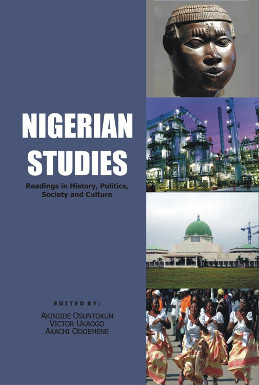
Nigerian Studies
Nigerian Studies: Reading in History, Politics, Society and Culture
Akinjide Osuntokun, Victor Ukaego & Akachi Odoemene (Eds.)
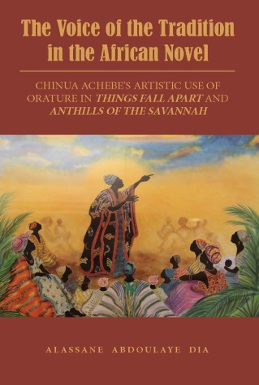
The Voice of the Tradition in the African Novel
This book contributes to the growth of African Literature, particularly to the understanding of the writings of Chinua Achebe as an icon and one of the pioneers and prominent writers in African literature. It is a scholarly work that highlights lots of topical issues over the notion of genre in terms of literary theory and criticism of the African novel. Hence, it shows broadly how Achebe uses his culture or more relevantly his oral tradition to build a literary genre that is specific to him and to Africa in general.
By evoking other critics and writers, this work focuses basically on Chinua Achebe’s first and most famous novel, Things Fall Apart (1958) and his latest one, Anthills of the Savannah (1987). Handled through a sober style, a stylistic approach and from a postcolonial perspective, it offers a broad reflection on how the African writer uses the oral tradition to rehabilitate history and to let the oral culture survive within the written one by means of the novel as an archaeological instrument that makes people hear the voice of African oral tradition in the novel with innovative strategies and methods of putting things together.
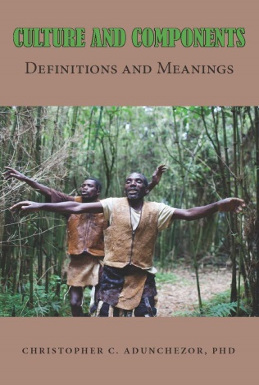
Culture and Components Definitions and Meanings
This is a humanistic, interdisciplinary, qualitative study that utilizes historical and hermeneutic methods to examine concepts, meanings and applications of the terms: culture, tradition, custom and religion. The study evaluates the connectedness and separateness that characterize the concepts and how intellectual pragmatic jams has module up all into a big confusion that impedes a clearer understanding of a whole from its parts. The moral impacts on the world societies today are enormous, and as such, it debases the human moral stance to such degradation that threatens human integrity now and makes it vanquished for the future.
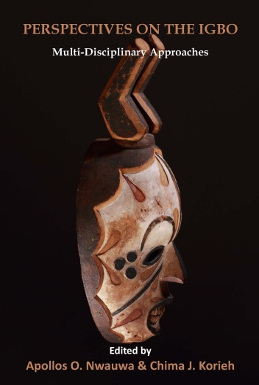
Perspectives on the Igbo: Multi-Disciplinary Approaches
Perspectives on the Igbo: Multidisciplinary Approaches explore an array of topics and themes that address aspects of the Igbo past, contemporary challenges and prospects, and Igbo identity at home and in the diaspora. This collections deals with the pre-historic past of the Igbo through the Igbo experiences in contemporary times. It covers a range of disciplines, including history, arts, culture, language, music, education, gender and youth. Here is a book that will enrich the knowledge of anyone interested in a broad overview of the Igbo experience.
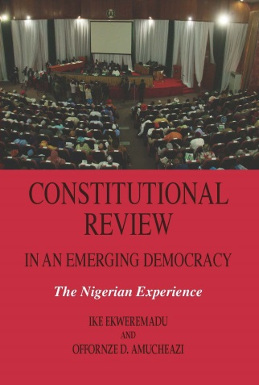
Constitutional Review
As developing democracies around the world, especially in Africa and the Middle East, attempt to uphold the rule of law and engender good governance, such effort is often essentially underpinned by constitutional development. Unfortunately, less emphasis has been placed on the process of constitution making. Rather, until recently, so much of the emphasis has been on the content of a constitution. This book is an important intervention to address this lacunae in Nigeria. It undoubtedly provides international and national actors with a new perspective and perhaps, practical guidance on designing and implementing constitution amendment processes. It identifies structures, processes and strategies that have enhanced constitution amendment exercises in Nigeria. It chronicles the manner in which the National Assembly of the Federal Republic of Nigeria has robustly nurtured and managed Nigeria’s complex, contentious, and multifaceted constitutional reform process. It also gives insights into the problems and challenges of constitution amendment in a nascent democracy as well the opportunities it presents for future development.
and the Speaker of the Parliament of the Economic Community of West African States (ECOWAS Parliament). He holds both Bachelor of Laws and Master of Laws degrees from the University of Nigeria and a Doctor of Laws degree from the University of Abuja. He has also obtained Leadership Certificates from Harvard University and Oxford University. Prior to his entry into politics, he was a legal practitioner and an Associate Lecturer at his alma mater. Before his election into the Senate in 2003, he held several positions amongst which were Chief of Staff, Enugu State Government House from 1999-2001; and Secretary to Enugu State Government, 2001-2002.
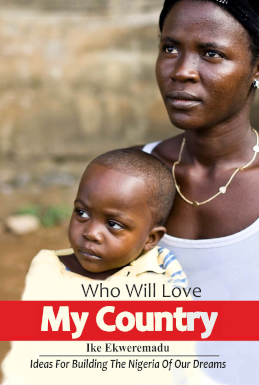
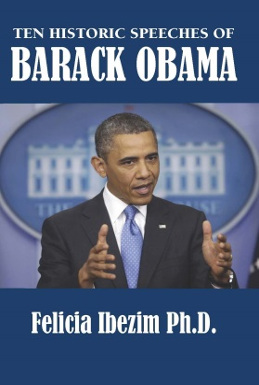
TEN HISTORIC SPEECHES BY BARACK OBAMA
The 44th President of the United States, Barack Obama, is probably the most popular celebrity president of the 21st century and the first African American president in the history of the United States. Tall, smart and talented, Barack Obama was born to lead. He was born to the president. He was born to be a catalyst for change. He was born to inspire hope and optimism to millions of Americans at the time many Americans were without hope. Barack Obama is the right man for the right job at the right time! Barack Obama is most probably one of the most inspirational orators of our time. Each time he gave one of his famous inspirational speeches, it becomes a teaching moment for every America. He is the great teacher while Americans are his captive audience. Indeed, there are many gifted and inspirational speakers in America but none has and still captivated American audience as Barack Obama. None, especially in the 21st century, has generated so much excitement, enthusiasm, interest and hope for change as Barack Obama.
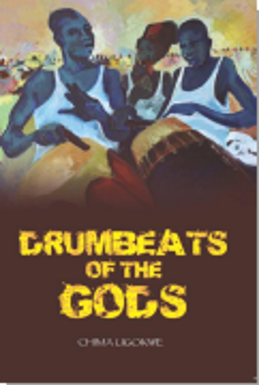
Drumbeats of the Gods
The sun rises up in the morning and went down in the evening. The birds sang melodiously in treetops and the insects whistled in their hidings in the darkness of the night. The old sat with their young and the young learned many ways of the clan – the many features of clan’s life. Then the young men who inherit their gender, born to be boys, become men with great pain and in these pain they learned many lessons. They survived many seasons and moons with courage, with bravery, but only one thing could make them lose all these achievements. As for Emenike he had gone against the rule of the clan and ozo title. He lied with his tongue, something considered bad for a titled man. He ended sadly. The world rolls on and on after these and changes down to our time appear as if we are ceasing to be what we were.
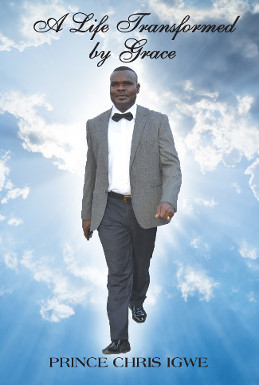
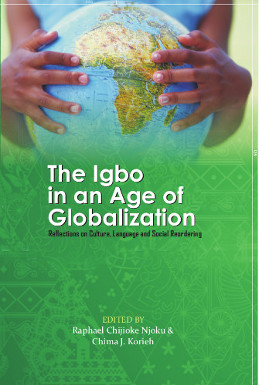
The Igbo in an Age Globalization
This book is about the Igbo people of Southeastern Nigeria and their changing ways of life in a globalized world. Here we conceive globalization as “the compression of the world and the intensification of consciousness of the world as a whole.” While change is as constant as the human journey from the moment of conception to the point of death, European colonialism starting from the late nineteenth century brought new dynamics that would change the face of Africa forever. Yet, the past five decades have revealed that the new pace of change is not slowing down soon. New technological breakthroughs and swift means of communication have facilitated the interaction of peoples from all corners of the world with exchange of cultures and ideas at a pace never experienced in history. While the result of globalization, in all its meanings, has been both exciting and confounding, concerns have arisen as to the manner with which Western cultural trends have permeated all corners of the globe with powerful potency. The various chapters in this book mirror both the observations and anxieties held by students of Igbo studies as alien habits and forces continue to infuse into the Igbo society; remaking the indigenous people’s ways of life in diverse ways.
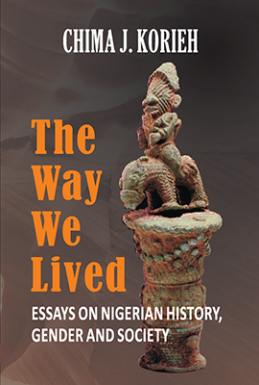
The Way We Lived
This work captures the voices of those whose activities have been neglected by historians and other scholars despite their central role in shaping the contours of change in society. Most of the essays in this volume deal with the effects of European contact: the Atlantic slave trade and its impact on Nigerian societies and the Igbo region in particular as well as the impact of European colonialism from the late nineteenth century. Nigerian and Igbo scholars will particularly benefit from this collection.
